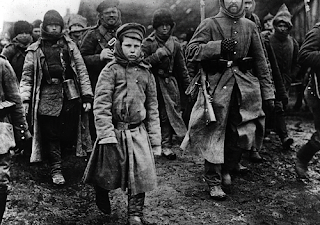In the July/August 2017 issue of Writer's Digest, author
Jane K. Cleland presented an article entitled "The Perception Gap." After explaining how writers can use their character's perception of events and people to "propel their plot," Ms Cleland challenged the reader to find examples of correct and incorrect perceptions in their work. I chose three examples from my novels in which my character made a judgement based on their personal experience. In two cases, their initial gut reaction, though well founded, were incorrect.
Massey
On Massey's first trip across the Atlantic, he tried to follow the suggestion given to him by seasoned ocean travelers, "Take the lower bunk." His attempt to follow the advice led to a confrontation and friendship. The following excerpt from
Ikons: Saint Nicholas the Wonder Worker, tells of his initial encounter with Marko and how perception based on visual clues can lead to false assumptions.
* * *
Spying an empty
lower bunk Massey made straight for it and threw his belongings on the mattress
just ahead of a badly worn carpetbag and bedroll belonging to another.
"Moy," said Massey staking his claim.
"Ta moye," came the equally irrefutable
retort in Polish.
* * *
 |
| Steerage Sleeping Quarters |
A standoff ensued and Massey, based on the man's body language, was sure the Pole meant to fight for possession of the bunk and Massey was ready to oblige. However, it turned out Massey's assessment of the situation was incorrect.
* * *
Massey stood his ground as the Pole's right hand formed a
fist. Just when blows seemed
inevitable, the Pole's face formed a full smile. He then moved back a step and put out his left hand, palm
up. Slowly he pounded his fist, meaty
side down, into his open palm three times.
Once more the Pole repeated his action and this time Massey recognized
the child's game of "rock, paper, scissors." Massey smiled and struck his palm three
times. Massey's rock broke Marko
Kozlowski's scissors, earning Massey the lower bunk and two life long friends.
* * *
Sergei
Sergei honed his fighting skills as an infantry officer on the Turkish frontier. Much later as a civilian volunteer, he witnessed the defeat of the Russian Third Army at the hands of the Germans. In this scene from
Banners: For God, Tsar and Russia, Sergei called upon his previous wartime experience to stem the tide of retreat and hold the line.
* * *
Words.
There are moments in a conflict when one man with words has the power to
change history. If he uses the right
words at the right time, beaten men will rally and the rush of defeat will be
stemmed. Sometimes the words must
implore the men, beg them to do their duty.
Other times, the words must chastise and humiliate them into standing
their ground. By the time Sergei
reached the road crowded with retreating men, he was in no mood to beg.
* * *
 |
| Russian Third Army In Retreat |
Sergei searched for the soldiers he needed by noting their mannerisms.
* * *
Finally, the men he awaited appeared.
* * *
Based on his correct assessment, Sergei was able to convince these men to reform the defensive line until precious artillery to be saved. It was also during this scene that Sergei had his perception of a previous character completely reversed.
Stepha
Ten year-old Stepha and his nine year old brother had run away from the displaced persons' camp in search of their father. Armed only with childish cunning and advice from older village boys, they have so far avoided trouble. However, in this scene from
Slogans: Our Children, Our Future, they believe their luck may have run out.
 |
| Young toughs |
* * *
“Hey, kid.”
Stepha dropped his end of Akulina's no-touch box and spun
around. Advancing toward him was an
older boy almost as disheveled as he.
Glancing to his sides, Stepha saw no place to hide and escaping with
their treasures was out of the question.
There remained only one option. “Get
ready.” Stepha instructed Vanya and both pulled out knives and took up a
defensive stance.
* * *
The older boy was much more street-wise than Stepha and immediately sized up the situation.
* * *
The boy continued coming, finally stopping seven paces
away. “You're from the camp, ain't cha,”
he said ignoring the younger boys' bravado.
Stepha shook his head.
“Don't lie. Only camp kids wear
them kinds of clothes. Can spot cha at
a thousand paces.”
* * *
The older boy introduced himself and offered to take the two brothers into their "gang." At first Sepha was skeptical, but finally relented. It turned out the gang had a use for the brothers talents.
* * *
A shudder ran through Stepha as he recalled another of
Kolya's warnings. One about gangs of
young thugs who lured unsuspecting children into their dens and robbed them.
“So what ya say?
Want to join our gang?” Ryzhy asked.
Stepha and Vanya eyed each other and felt their stomachs rumble. “Da,” Stepha said, “we'll join, but
nobody better touch our stuff.”
* * *
I hope
Jane K. Cleland agrees with my interpretation of her article. In any case, in your writings keep in mind that often your character's perception may or may not be reality.





